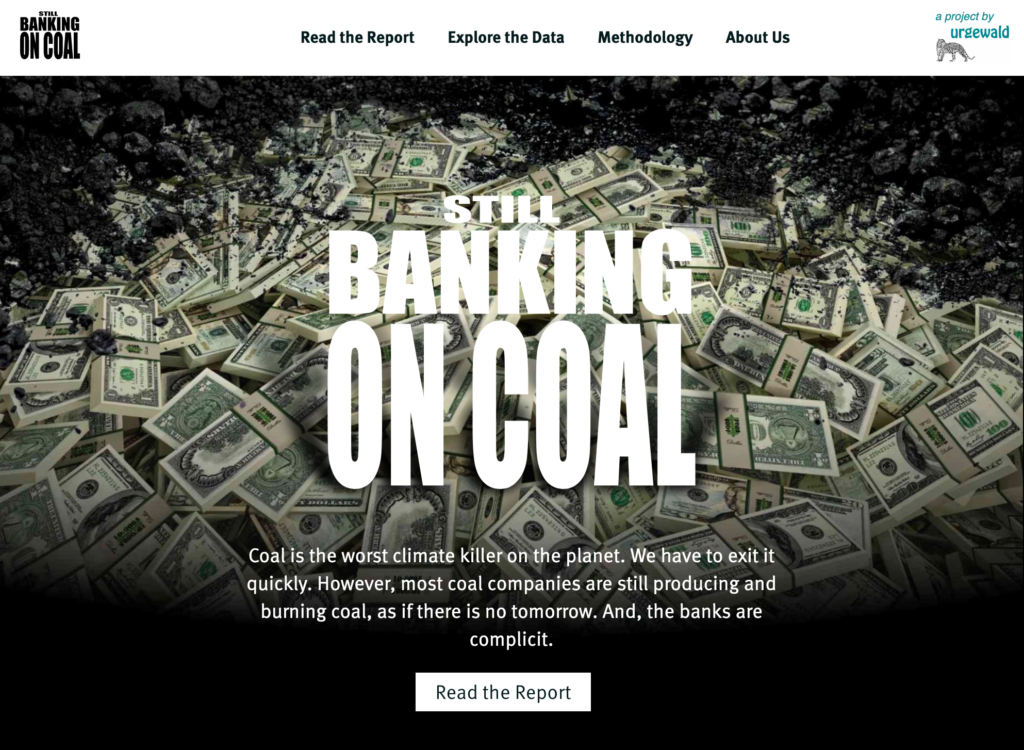New research reveals over 78% of coal financing from banks is coming from bond underwriting.
Today, Urgewald released data showing that commercial banks provided US$ 470 billion in loans ($79.9 bill), bonds ($369.8 bil), and share ($21.1 bill) underwriting to the coal industry between January 2021 and December 2023.
The following banks were the top bond underwriters of the global coal industry outside of China: Mizuho ($.9 bill), JPMorgan ($2.7 bill), Mitsubishi ($2.5 bill), Citi ($2.3 bill), Bank of America ($2.1 bill), Barclays ($1.7 bill).
| Bank | Country | Underwriting (USD) |
| Mizuho | Japan | 3,951.8 |
| JPMorgan Chase | USA | 2,727.4 |
| Mitsubishi UFJ Financial | Japan | 2,563.7 |
| Citigroup | USA | 2,387.3 |
| Bank of America | USA | 2,153.3 |
| Barclays | UK | 1,784.0 |
| Nomura | Japan | 1,689.0 |
| Wells Fargo | USA | 1,582.8 |
| Morgan Stanley | USA | 1,551.3 |
| SMBC Group | Japan | 1,427.3 |
| Goldman Sachs | USA | 1,424.1 |
| Daiwa Securities | Japan | 1,346.6 |
| Royal Bank of Canada | Canada | 1,334.7 |
The IEA Net Zero By 2050 scenario calls for a phase-out of coal in OECD countries by 2030 and for the rest of the world by 2040. In the dataset, the coal bonds underwritten by the banks have an average maturity date of 2032, meaning banks are helping finance coal companies well past the OECD deadline.
“Without an end to coal financing, it is hard to imagine that we will be able to exit coal in time. Out of the 1,433 coal companies, whose financing we researched, 40% are still planning to develop new thermal coal projects and 95% refuse to set a date for the closure of their coal assets.
Although some banks in some countries have definitely moved in the right direction, the ‘good’ banks are still far outnumbered by the ‘bad’ and the ‘ugly’. And initiatives like the Net Zero Banking Alliance have delivered net-zero impact up to now. What we need is a wind of change from regulators.
Voluntary coal exclusion policies are necessary and good, but it often takes years of public pressure to achieve them – and time is running out.”
– Katrin Ganswindt, head of financial research at Urgewald
